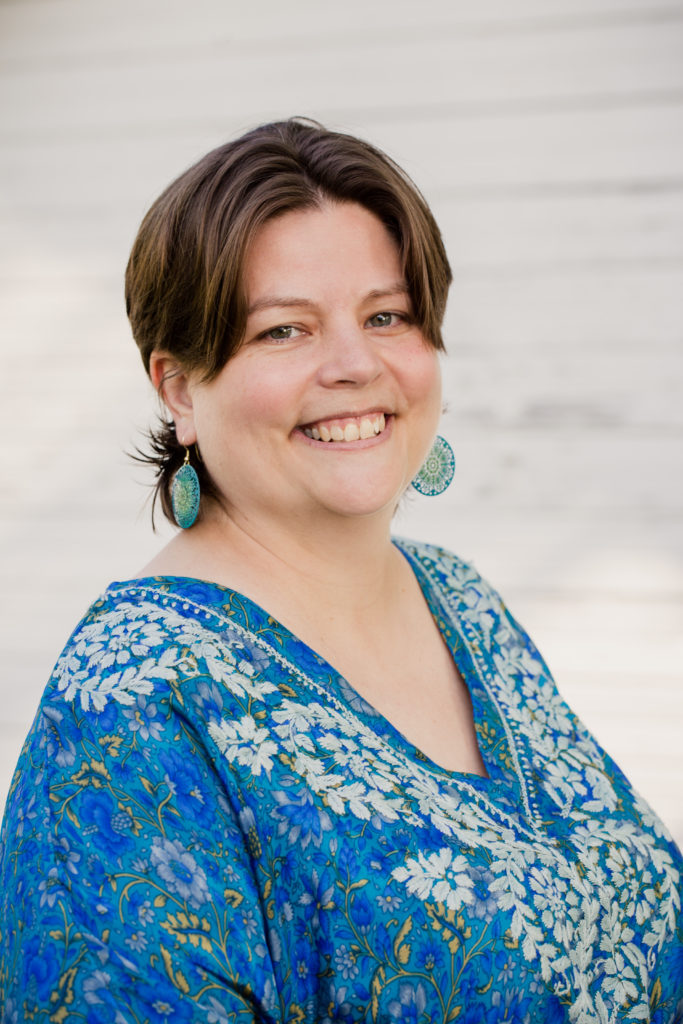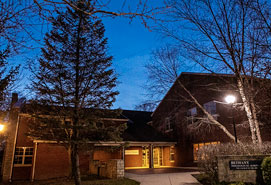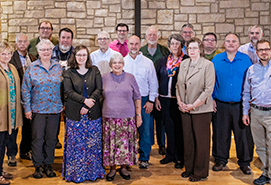Hope in the Garden

Hope Staton has found a powerful way to combine her passions for gardening and community building with a unique ministry placement.
Staton, a Master of Divinity student, is working with the Felege Hiywot Center (FHC), a nonprofit organization in Indianapolis dedicated to teaching youth about urban farming, environmental preservation, and community service. She is currently teaching a junior master gardener course to a group of high school age African-American males. Once these young men are certified, they will teach gardening skills to younger kids, while also working in the Center’s urban garden, which provides produce for residents in areas of the city that are considered “food deserts.”
“Gardening is such a good entry point into exploration of other issues like creation care and food sovereignty,” says Staton. “The young people are very interested in the subject matter, and they are eager to go deeper.”
The students are paid for the work that they do in the program, and they can gain a variety of skills related to caring for the trees in the Center’s orchard, cooking, and entrepreneurship. The Center is very intentional about helping youth to understand how the skills they are learning may be useful in other aspects of their lives. Many students remain involved in the Center’s program for as long as 10 years, starting during elementary school and continuing through high school graduation or beyond.
“We often ask students to name the skills they are using that day, and have a lot of conversations about how they might talk about the work they have done in a job interview or on a college application,” she says.
Staton has appreciated that program participants have welcomed and accepted her. She expected that she might face “reasonable pushback” or be greeted with caution as an instructor who is both white and not from Indianapolis among a predominantly African-American group from the neighborhoods surrounding the Center, a few miles northeast of downtown.
“They are willing to let me know them, and to demonstrate that I am going to show up and participate in some of their activities.”
Although not directly connected to a church or religious organization, FHC is grounded in the Christian faith exemplified by its founder, Aster Beleke. Beleke came to the United States from Ethiopia in the 1970s. Since her arrival, she has been involved in youth development work, beginning by tutoring students after school, and sharing stories from her own past. She incorporated the nonprofit in 2004, and tailors the offerings to the needs of the community — including after school programs and summer day camps.
“This Center is focused on learning the needs of the community and individual youth, and then figuring out what we need to provide to program participants so that they are excited and challenged,” says Staton. “It was important to me to have an experience in a different economic and cultural setting than what I am used to, and I wanted to work under a supervisor who is not white so that I could more accurately learn about potential cultural conflict concerns. Beyond that, I wanted to be part of an organization that was truly serving the community that surrounds it. One of the things that I believe makes FHC effective is that its roots in the neighborhood are very deep.”








 Green Circle: Bethany invests in 100% renewable energy.
Green Circle: Bethany invests in 100% renewable energy.